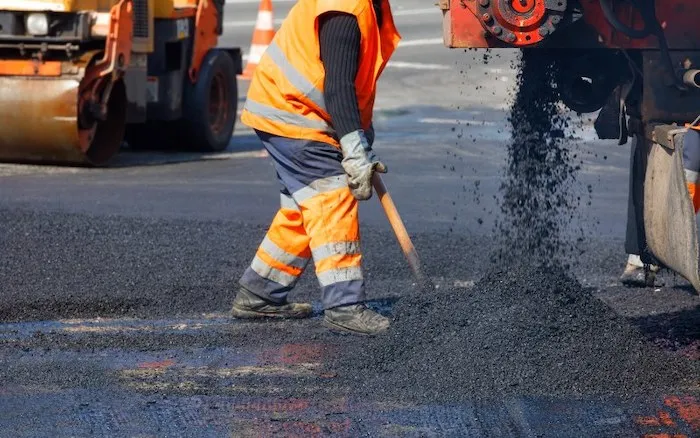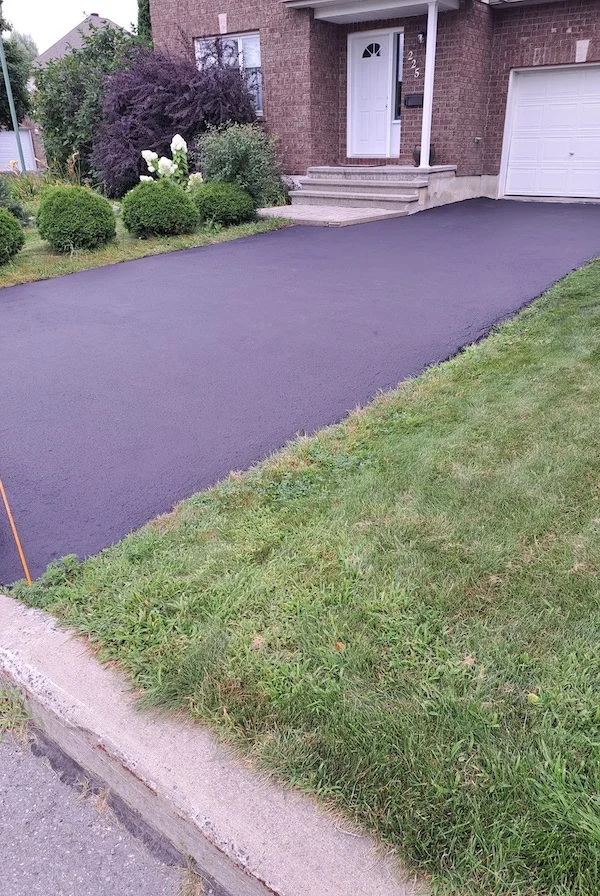Concrete vs Asphalt Roads: Pros and Cons of Each
Roads are the backbone of transportation, and the choice between concrete and asphalt can shape their durability, cost, and performance. Whether you’re a homeowner planning a driveway or a city planner designing infrastructure, understanding the pros and cons of concrete vs asphalt roads is key. In this blog, we’ll break down the strengths and weaknesses of each material, helping you decide which suits your needs—be it longevity, maintenance, or budget.

What Are Concrete and Asphalt Roads?
Concrete roads are made from a mixture of cement, water, and aggregates, forming a rigid, durable surface. Asphalt roads, on the other hand, use a flexible blend of bitumen and gravel, laid in layers and compacted. Both have been used for decades, with asphalt dominating highways and concrete often seen in urban streets. Each offers unique benefits, but their differences in construction and upkeep make them better suited to specific scenarios.
Choosing between concrete and asphalt isn’t just about preference—it’s about matching the material to the project’s demands, from traffic load to climate conditions.
Pros of Concrete Roads
Concrete roads come with several advantages that make them a strong contender:
- Durability: Concrete lasts 30–50 years, outpacing asphalt in lifespan.
- Low Maintenance: It resists weathering and heavy loads, needing fewer repairs.
- Heat Resistance: Concrete reflects sunlight, staying cooler in hot climates.
- Load Capacity: Perfect for heavy traffic areas like industrial zones.
For example, a concrete road in a busy city can handle buses and trucks without cracking, while its light color reduces heat buildup—a bonus in sunny regions.
Cons of Concrete Roads
Despite its strengths, concrete has drawbacks to consider:
- High Initial Cost: Installation is pricier due to materials and labor.
- Rigid Structure: It’s less forgiving, leading to cracks if the ground shifts.
- Longer Installation: Concrete takes days to cure, delaying use.
- Noise: Tires on concrete can be louder than on asphalt.
In a residential area, the upfront cost and noise might steer you away from concrete, especially if budget and quiet are priorities.
Pros of Asphalt Roads
Asphalt roads have their own appealing qualities:
- Lower Cost: Asphalt is cheaper to install, ideal for tight budgets.
- Quick Installation: It sets fast, often ready in hours, not days.
- Smooth Ride: Asphalt’s flexibility offers a quieter, smoother drive.
- Easier Repairs: Patching cracks or potholes is simpler and faster.
A rural road or suburban driveway benefits from asphalt’s quick setup and affordability, letting you get back to normal fast.
Cons of Asphalt Roads
Asphalt isn’t perfect—here are its downsides:
- Shorter Lifespan: It lasts 15–20 years, needing more frequent replacement.
- High Maintenance: Asphalt cracks and fades, requiring regular sealing.
- Heat Sensitivity: It softens in extreme heat, leading to ruts.
- Weather Wear: Rain and freeze-thaw cycles break it down faster.
In a snowy region, asphalt’s need for constant upkeep might outweigh its lower cost, as plowing and salt accelerate wear.
Comparing Costs
Cost is a big factor in the concrete vs asphalt debate. Concrete roads cost $5–$10 per square foot to install, reflecting their durability but straining initial budgets. Asphalt runs $2–$5 per square foot, a savings upfront. However, asphalt’s maintenance—sealing every 2–3 years—adds up, while concrete’s longevity cuts long-term expenses. For a small driveway, asphalt might win on price; for a highway, concrete’s lifespan could justify the investment.
Weigh your timeline and funds. A quick project favors asphalt, but a decades-long plan leans toward concrete.
Climate Considerations
Weather plays a huge role in choosing between concrete and asphalt roads. Concrete thrives in hot, stable climates, resisting heat and needing little care. Asphalt performs better in colder areas where its flexibility handles freeze-thaw shifts—though it still needs sealing to combat moisture. In rainy zones, concrete’s resistance to erosion gives it an edge, while asphalt’s dark surface absorbs heat, a perk in snowy climates but a flaw in deserts.
Check your local conditions. A concrete road in a hot, dry city lasts longer, while asphalt suits a snowy suburb with regular plowing.
Which Is Better for Your Project?
Deciding between concrete and asphalt roads depends on your needs. For heavy traffic, long-term use, or hot climates, concrete’s durability shines. For budget-friendly, quick installs or quieter streets, asphalt takes the lead. Residential driveways often go asphalt for cost and ease, while commercial lots or urban roads might pick concrete for strength. Consider traffic, weather, and how long you want the surface to last before choosing.
Think about upkeep too. Asphalt needs more frequent attention, while concrete demands less but costs more upfront. It’s a balance of now vs. later.
Conclusion
The concrete vs asphalt roads debate comes down to weighing pros and cons against your goals. Concrete offers unmatched durability and low maintenance, perfect for lasting infrastructure. Asphalt brings affordability and flexibility, ideal for quick fixes or smaller projects. Assess your budget, climate, and usage to pick the best fit—both materials can serve you well with the right planning. Whether it’s a driveway or a highway, understanding these trade-offs ensures a road that stands the test of time.
Consider Pavage Laval and Gatineau
If you're looking for the best paving service provider in Laval, Montreal, or the entire Quebec region, look no further than Pavage Laval Asphalte Laval. Our team of experts is dedicated to meeting all your paving needs, providing high-quality and reliable services. Whether you're located in Laval, near Montreal, or elsewhere in Quebec, we're here to assist you with all your paving projects.
Don't hesitate to contact us today. You can reach us by phone at +1 (438) 476 6508, email us at pavage-asphalte-laval-montreal@outlook.com, or visit our website at pavage-asphalte-laval-montreal.ca for more information.
For those in need of paving and asphalt services near Gatineau, Quebec, we recommend contacting Pavage Gatineau Asphalte Gatineau Earnanswers. Our team of experts is ready to answer all your questions and provide quality solutions. To learn more or to request a quote, visit our website at pavagegatineau.com.
Additional Reading
A detailed look at concrete and asphalt roads for informed decision-making +1 (438) 476 6508
Concrete vs Asphalt Roads: Pros and Cons of Each

We offer paving services in Laval, Quebec, specializing in asphalt for residential and commercial projects. info@asphaltesolution.com


Contactez-nous
Pavaging Laval Asphalt Laval Earnanswers
If you're looking for quality paving near you, our team of Laval paving experts guarantees long-lasting results. We also serve the Montreal region and surrounding areas. Contact us for a quick quote on your asphalt needs in Laval and nearby locations.

